DevOps
Our DevOps service provides a comprehensive solution to accelerate software development, deployment, and delivery

DEVOPS
Driving Efficiency and Collaboration
With a focus on Oracle, Microsoft, AWS, and VMWare technologies, we assist businesses in adopting agile and automated practices, enhancing collaboration between development and operations teams.

Greater Efficiency
By implementing DevOps practices, companies can optimize their software development and delivery processes, reducing time to market and improving product quality.
Enhanced Collaboration
We foster continuous collaboration and communication between development and operations teams, breaking down silos, and improving alignment.
Increased Stability
Through automation and continuous monitoring techniques, we help ensure the stability and reliability of applications and systems in production.
Improved Scalability
With a focus on AWS cloud and VMWare virtualization technologies, we help businesses scale their infrastructures and resources according to changing business demands.
PROCESS AND METHODOLOGY
Our DevOps approach follows a
well-defined process
to ensure successful implementation.
Analysis and Planning
We work closely with your team to understand your needs and business goals, defining a customized DevOps strategy.
Preparation and Validation
We implement automation tools to streamline the software build and testing process, enabling faster and more reliable delivery.
Execution and Monitoring
Utilizing continuous deployment techniques, we release software updates incrementally and consistently, reducing risks and accelerating time to market.
Validation and Testing
We implement monitoring and analysis solutions to assess the real-time performance of applications and systems, gathering valuable insights for continuous improvement.
TECHNOLOGY AND SKILLS
Experienced
Experts
Migration experts, ensure a safe and successful transfer of your data and systems. Our experience and advanced technology ensure a smooth migration to your new technological environment.
We leverage Microsoft technologies such as Azure DevOps, PowerShell, and Azure Cloud Services for the implementation and management of solutions on the Microsoft cloud.
Our expertise includes using Oracle tools and technologies like Oracle Developer Cloud Service, Oracle WebLogic Server, and Oracle Database to drive efficient development and deployment of enterprise applications.
Our team has experience using AWS services like AWS CodePipeline, AWS CloudFormation, and AWS Elastic Beanstalk to automate and scale application infrastructures in the cloud.
We are experienced in using VMWare virtualization technologies, such as vSphere and vCenter, to manage and optimize virtualized infrastructure environments, ensuring efficiency and scalability.
We use popular automation tools such as Ansible, Jenkins, and Chef to streamline and standardize deployment and configuration processes.
Implementing version control systems like Git facilitates collaboration and tracking changes in source code.
We use monitoring and analysis tools like Elasticsearch, Logstash, Kibana (ELK stack), and Prometheus to monitor and analyze application and system performance, identifying potential issues and improving operational efficiency.
We implement agile methodologies, such as Scrum or Kanban, to facilitate collaboration, adaptability, and continuous delivery of value throughout the software development lifecycle.




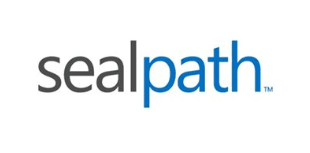
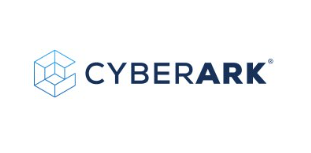

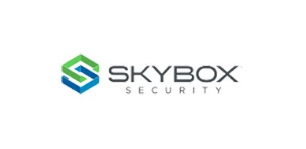

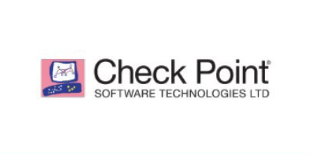

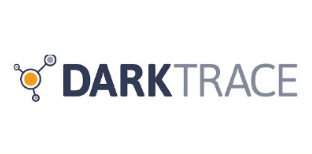
CONTACT
Request a Meeting with Our Experts
We'll address your company's digital maturity and explore digital opportunities to enhance your business in a one-hour call.
SERVICES
We strive to create a professional ecosystem
We have a team with extensive industry experience to provide a comprehensive and tailored service.
Migrations
Transfer your data with
complete confidence.
FAQS
DevOps is a methodology that integrates software development with IT operations to accelerate application delivery and improve collaboration between teams.
Some benefits include faster and more frequent software delivery, higher product quality, operational efficiency, and improved collaboration between teams.
Common tools in DevOps include Jenkins, Git, Docker, Kubernetes, Ansible, and Chef, among others.
DevOps enables continuous delivery by automating development, testing, and deployment processes, allowing for quick and frequent software releases.
Best practices include process automation, using infrastructure as code, fostering team collaboration, and continuous monitoring.
The DevOps team is responsible for automation, infrastructure configuration, managing the development platform, and fostering collaboration between development and operations teams.
Continuous integration is a DevOps practice that involves regularly combining and verifying source code in a shared repository to detect errors early and ensure higher software quality.
Continuous delivery is a DevOps practice that enables the rapid and secure release of software through automated testing and deployment processes.
Continuous monitoring involves constant tracking and analysis of software performance and availability in production to quickly detect and address issues.
DevOps enhances software quality by promoting early collaboration between development and operations teams, automating tests and deployments, and enabling continuous feedback.
Important skills for DevOps include programming knowledge, system administration experience, automation skills, and the ability to work collaboratively in a team.
It's possible to implement DevOps in traditional organizations, but it may require cultural and organizational changes.
Key steps include fostering collaboration, promoting open communication, establishing continuous delivery processes, and adopting tools and technologies supporting automation and integration.
The organization must be willing to adapt and learn from DevOps principles and practices to reap the benefits in terms of efficiency, software quality, and responsiveness to change.
Automation plays a crucial role in DevOps by streamlining and optimizing development, testing, and deployment processes, enabling faster and more reliable software delivery.
In DevOps, security is addressed comprehensively, incorporating practices such as security analysis in development, identity and access management, and constant monitoring for potential vulnerabilities.
Common challenges in implementing DevOps include resistance to change in organizational culture, integration of tools and legacy systems, and ensuring effective collaboration between teams.
Success in DevOps is measured through key performance indicators (KPIs) such as deployment frequency, lead time, software quality, and customer satisfaction.
Infrastructure as code is a DevOps practice involving programmatic management of infrastructure using scripts and versioned configurations, facilitating the management and scalability of environments.
DevOps encourages closer and continuous collaboration between development, operations, and quality teams, breaking down silos and improving communication to achieve common goals more efficiently.
In DevOps, practices like automated testing, code review, static and dynamic analysis, along with continuous monitoring, ensure software quality at every stage of the lifecycle.
Leadership plays a crucial role in the successful implementation of DevOps by promoting a collaborative culture, facilitating the adoption of new practices and tools, and supporting necessary organizational changes.
